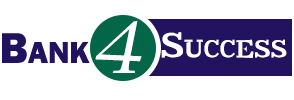WordPress is a popular CMS that allows website owners to easily create and maintain an online presence. WordPress websites, however, are often targeted by malicious hackers who seek to exploit security vulnerabilities.
In today’s digital world, the importance of website security is not to be underestimated. To protect your website against hackers and malicious software, you need to take concrete steps. Strong passwords, regular updates of software, firewalls and secure coding can all help to improve the security of your website. This will make it safer for you and your users.
This article will explore the five most common threats to WordPress websites and offer actionable strategies to counter them. Implementing the recommended measures will strengthen your WordPress website’s security and protect it from prevalent threats.
Unauthorized entry routes: Vulnerable access points revealed
Hackers often use a simple approach to compromise a WordPress site, by exploiting the login form. Hackers repeatedly try different usernames and passwords to gain access to a website’s backend.
It is important to strengthen the protection of the login form in order to effectively counter these attacks. It is necessary to implement measures that limit the number and type of login attempts coming from a particular IP address, as well as automatically block this IP after a certain number of failed attempts. This strategy can help to prevent brute force attacks, thereby improving the overall security of your website.
Hackers often resort to brute force methods in their quest to obtain unauthorized access to WordPress log-in credentials. The number of login attempts a user can make is limited by incorporating protection solutions like plugins. This significant hindrance will make it more difficult for hackers to penetrate your website.
Absence of Validated SSL Certificates: A Weakness that jeopardizes Website Integrity
SSL certificates are essential for ensuring the safety and confidentiality of visitors to websites. SSL certificates prevent unauthorized access by encrypting communications between a site and its users. This includes personal information and financial transactions. SSL certificates are an essential security measure that not only protects user data, but also improves the credibility and reputation of a website.
A SSL certificate is a digital assurance that encrypts the data sent between a site and its users. This encryption is essential for protecting sensitive data, including login credentials, financial information, and personal details.
A website without a valid SSL cert leaves it vulnerable to malicious individuals intercepting data. It is important to equip your website with an SSL Certificate in order to mitigate this risk. This will redirect any non-HTTPS requests on your site to HTTPS, protecting all data sent between your website, and your visitors. This proactive approach will enhance the security of your site and encourage trust among users.
Related: 7 tips to increase your YouTube subscribers
Unshielded WordPress Aspects: Risks and Consequences
WordPress is a dynamic platform that constantly evolves with the release of security patches and new features. If you fail to update the WordPress core, plugins, and themes, your website can be vulnerable to various types of security threats.
It is important to prioritize regular WordPress updates, themes and plugins in order to avoid these possible hazards. You can do this either manually or using plugins that automatically update them.
Maintaining an updated website also involves dealing with issues like outdated content, broken or low-quality links and typos in URLs. These factors have a significant impact on website traffic, engagement and conversions.
You can enhance the search engine ranking and improve user experience by re-directing broken or obsolete links to new, relevant pages. This plugin will also prevent potential customers from leaving your website due to outdated or incorrect content or URLs. It will redirect them to the right pages or update information as necessary.
Maintaining a website requires constant maintenance and adjustment. These adjustments may, however, make the site unusable or have a poor user experience. You can use the WP Maintenance plugin to address this issue. It allows you to place your website in maintenance mode while updating. This will ensure that your users have a smooth update process and avoid any unpleasant experiences.
How to deal with broken links and the importance of regular backups
Regular backups are essential for website owners, who understand that they protect against data loss. Updated backups allow for easy restoration of valuable content, customer data and configurations in the event of an accidental deletion, hacking or system failure. This minimizes downtime and preserves the integrity of your website. Regular backups offer peace of mind by providing a fast and efficient recovery method in the event of an unforeseen circumstance.
The security of your website is at risk if you fail to make regular backups. Your website is vulnerable to data loss due to server crashes, hacking or other unforeseen events.
It is important to ensure that your visitors do not experience any downtime while accessing your site when you are performing maintenance. Plugins and other software can be used to create a landing page that is informative about maintenance. These plugins provide a variety of information, such as the live date and time and attractive graphics. They also offer an engaging experience to your audience.
A regular backup schedule is vital to reducing the risk of losing important data. You can achieve this by using manual backup procedures, or by utilizing plugins which automate the process of backup and store your data securely in cloud storage. Implementing robust backup measures will protect you from unforeseen events and preserve your website’s valuable content.
In addition, maintaining your website’s overall performance and user-experience is critical. These links frustrate your visitors and can also have a negative impact on your search engine ranking. By addressing these issues quickly, you can improve the usability of your site and its credibility.
Final Words
In order to ensure a secure online presence, WordPress websites must address core security issues. Implementing recommended measures, such as strengthening login forms, obtaining valid SSL certificates and updating WordPress components and regularly backing up data on the website, can significantly enhance its security and shield it against potential risks. These proactive measures safeguard sensitive data and also contribute to overall credibility and trustworthiness, ensuring a safer and reliable user experience.
Read more:

